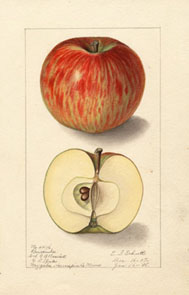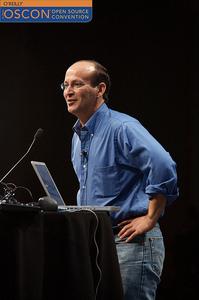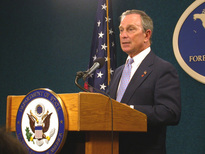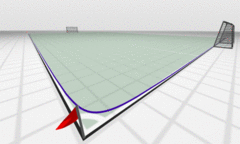
Ben Hyde dug up a paper
about
Norms-Based Intellectual Property Systems: The Case of French Chefs,
which discusses the issues involved in the recent
case of the French chefs,
even though it was published before that foofaraw.
This paper makes me wonder if that’s what Apple is doing:
With great power comes great responsibility, and apparently with DRM-free
music comes files embedded with identifying information. Such is the
situation with Apple’s new DRM-free music: songs sold without DRM still
have a user’s full name and account e-mail embedded in them, which means
that dropping that new DRM-free song on your favorite P2P network could
come back to bite you.
We started examining the files this morning and noticed our names and
e-mail addresses in the files, and we’ve found corroboration of the
find at TUAW, as well. But there’s more to the story: Apple embeds your
account information in all songs sold on the store, not just DRM-free
songs. Previously it wasn’t much of a big deal, since no one could imagine
users sharing encrypted, DRMed content. But now that DRM-free music from
Apple is on the loose, the hidden data is more significant since it could
theoretically be used to trace shared tunes back to the original owner. It
must also be kept in mind that this kind of information could be spoofed.
—
Apple hides account info in DRM-free music, too,
By Ken Fisher,
ars technica,
May 30, 2007 – 01:39PM CT
The ars technica article goes on to recommend a trivial way to keep
the music and ditch the identifiers, and points out that the presence
of such an identifier on somebody else’s disk doesn’t necessarily
prove copyright infringement.
But maybe that’s not what Apple is really after.
Maybe it’s so people will know that Apple could know,
and other people could know, where you got your music.
Like French chefs know where other chefs got certain recipes.
Norms-based iTunes?
-jsq
 Bruce Schneier reviews a paper about data mining, which unfortunately
includes the phrase “the Security-Liberty Debate” in its title.
He reiterates that
liberty is security.
Bruce Schneier reviews a paper about data mining, which unfortunately
includes the phrase “the Security-Liberty Debate” in its title.
He reiterates that
liberty is security.


 The New York Times asked:
The New York Times asked:



